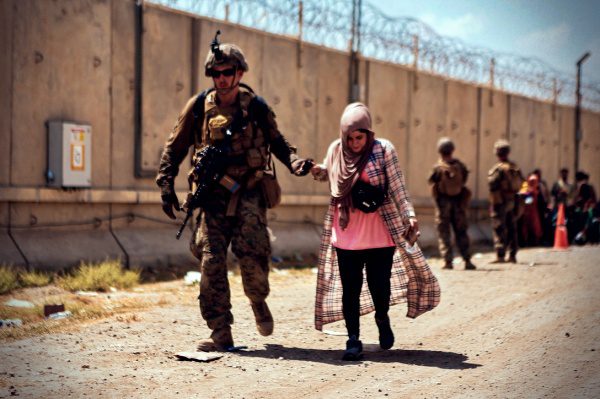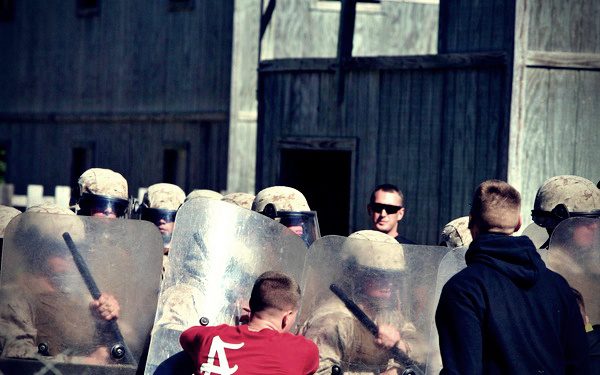Falsely Accused of Sexual Assault? What to Do If It Happens to You
Overview of victimology:
A sexual assault is a highly traumatic experience. It can be useful to think of it as an assault that has a sexual element. Military panels are familiar with the results of trauma. Use that knowledge to your advantage in fighting the assumptions the panel may bring to a case.
1. Reactions to Trauma: There are as many reactions to a traumatic event as there are victims (or observers) of that event. In the military, we have experience with varied reactions to battle trauma, ranging from stoic acceptance to emotional breakdown. Yet society has created rigid behavioral expectations for a sexual trauma victim, often called “rape myths,” and military panels
seem to share them. Victim behavior which differs from these expectations often affects how
jurors assess victim credibility.3 Overcoming these normative expectations is a key trial skill for
Trial Counsel. Both lay witnesses and experts can help with this task. Many explanations for
counter-expectational behavior also make logical sense once they are explained. The explanation
process begins with voir dire and continues through evidence and closing argument.
a. Victims Rarely Fight Back (or Scream):
-“Frozen fear” : also known as “tonic immobility”; common in trauma situations;
manifested by passivity and silence
-includes: “fear” of the physical power of an attacker
– shock that a friend would assault (& betray) them,
-shock of sudden assault
-inability to focus on events
-mentally distancing themselves from what is happening
b. Victims rarely report assault immediately : Only 30% of military sexual assaults are
reported to anyone.4 A majority are reported from hours to days later. Reasons (sensible
if elicited carefully):
-Confusion (about what happened and whether it was illegal),
-guilt (self-blame if victim was drinking, engaging in flirting or prior sexual
relations with the offender, or voluntarily travelled to an isolated place where the
assault took place), or –
– concern that others will doubt account (including knowledge that police or the
chain of command did not take other reports seriously)
-“don’t be a snitch” mentality
-unit pressure
-repercussions of reporting on career,
-rank differential between offender & victim
3 These same normative misunderstandings of victim behavior also obviously affect appellate courts. The panel in
United States v. Lucas, 2012 WL 3728017, NMCCA 201100372, 28 Aug. 2012, endorsed half a dozen rape myths
in reversing a rape conviction.
4 2010 DoD 2010 Workplace and GenderRelations Survey of Active Duty Members, p. 35.
-belief that nothing will be done
-concern about cost of complaint to offender;
-rationalizing that assault was not criminal;
– perception that most sexual assault reports are false and if the victim reports,
she will be viewed as a liar by others in the command, especially if victim behaved
counterintuitively;
–[trial strategies: people believe that prompt report = credible; late report =
normal;
–explain why the behavior is logical? If historically little command
action/support, is that logical? If others were treated badly by unit, is that logical? Use the
developed emotional reactions of your victim to explain the late report. Have her testify
to her reasons. Even strange reasons can support credibility. Some explanation is
mandatory.]
c. Not all victims cry
-trauma victims often become stoic, internalize to cope
-strength under pressure is a military value
-victims of sexual assault often react in ways similar to battle stress
-time passes before trial; human beings cope.
-any emotion possible at trial: tears, “flat affect (wooden, non-reactive), looking
“normal.”
2. Behavior outside of Normative Expectations (Rape Myths)
a. Myth: Only strangers rape : less prevalent now than in past, BUT
–corollary: non-stranger sexual assault is something less than “rape” & therefore not as
important
— civilian: 82% rapes of women, 85% rapes of men committed by non-strangers.5
–Military: 97% of violent sex crimes committed by acquaintances; [NOTE: only 21% by
a family member or significant other (boyfriend, date).]6
b. Myth: Rapists always use weapons and cause physical injury :
-Few non-stranger sexual assaults leave visible injury.
-Weapon is a concept.
-most common weapon in military sexual assaults = alcohol
-offenders use least force necessary, often only a threat;
-often only an obvious difference in size and strength.
— normative belief (myth): lack of physical resistance = implicit consent; see “Victims
Fight Back (or Scream)”, supra;
5 Centers for Disease Control, National Intimate Partner & Sexual Violence Survey, 2010. Further breakdown of
female rapes: 51.1% Current or former intimate partner, 12.5% family member, 2.5% Person of Authority, 40.8%
acquaintance (more than 100% due to multiple perpetrators in an incident.)
6 Army Gold Book 2010, pp. 125-26.
[trial strategy: use statutory language: “Lack of verbal or physical resistance orsubmission resulting from the use of force, threat of force, or placing another person in
fear does not constitute consent.”7 Argue “when fear is in the room, consent is not.”
c. Myth: Women often lie about being raped: this myth remains strong in the military;
actual number of military false allegations untested, unknown; reliable civilian studies
find only 2% to 10%.8
–frequent battleground issue: address in voir dire, by experts
d. Myth: Rape victims assume the risk of being raped (“asking for it”) :
-drinking too much
– wearing revealing clothes,
-dancing like young people dance
-innocent flirting
-[trial strategy: “A current or previous dating or social or sexual relationship by itself or
the manner of dress of the person . . . shall not constitute consent.”9 Start here. Show that
victim’s behavior was the norm for her age & cohort; “nobody buys a ‘rape dress’ and
nobody ‘asks to be raped.’”]
–[trial strategy: address myths directly, in voir dire & in argument. Emphasize judicial
instructions (“only facts of this case are relevant,” “you will be violating your oath if you
assume someone wanted forcible sex b/c of how they dress or dance”)
3. Recantation/non-cooperation:
–criminal justice process:
– adds to victim trauma; studies suggest that the trial process may be more traumatic than
the assault for some victims;
-demands time and energy
– is slow.
-delays recovery by focusing the victim on the event through interviews, Article 32
hearings, motion hearings, and trial preparation.
–expressions of doubt by investigators, trial counsel, the command or fellow soldiers may cause
victim to “give up” the process, recant, or stop communicating.
–family, friends, others in military unit may add pressure
-financial concerns (in familial rape) may also result in recantation
-primary reason victims recant is fear (of further attack, effect on career)
4. Inconsistent statements – the norm in cases of trauma; seen by juries as indicator of falsity
— truth-tellers more likely to be inconsistent than liars; liars consciously try to repeat
same story; truth-tellers reconstruct the event for each statement, rarely in identical
language;
7 Art. 120 – definition of consent
8 Lisak, David, et. al., False Allegations of Sexual Assault: an Analysis of Ten Years of Reported Cases, 26(12)
Violence Against Women 1318 (2010).
9 Art. 120 – definition of consel
— trauma victims rarely remember events chronologically
— many trauma victims “normalize” — try to make sense of the attack, explaining away
the pain or severity of the incident; this can include continued contact w/ the offender,
texting him, phone calls;
— cognitive avoidance: damping down the worst part of the trauma
— self-blame, or alternative explanations that make the betrayal less traumatic
–accounts shift as victim becomes more objective
5. Military victim profile : 95% female; 60% less than 1.5 years service; 68% age 18-22. Alcohol
used by victim or offender in 63% of cases. Sixty percent of crimes committed on Friday,
Saturday, Sunday.10
–Vulnerability – This military victim profile mirrors civilian college profile;
–Military victims often have limited support:
-“free” from parental control or guidance;
-limited time for close friendships in new place
– new and “alien” culture designed, in part, to reduce independence.
-lots of free time
-readily available alcohol
–offenders select vulnerable victims; remind panel of this logical fact
– consider post-crime vulnerabilities of trauma victims
-self-medication with alcohol or drugs
-further isolated by shock, fear, shame, and self-blame
-Victims cope with trauma in unexpected ways


